How to create Data Entry Form?
In this Excel tutorial, you learn to create a data entry form in Excel. Data entry forms make it easier to enter and manage data in a structured way. They can help to reduce errors and save time.
Creating a data entry form in Excel can make it easier to enter and manage data in a structured way.
Why to create a data entry form?
- Accuracy: can help to reduce errors by providing validation and formatting rules.
- Efficiency: can save time by making it easier to enter data and navigate between fields.
- Consistency: can help to ensure that data is entered in a consistent format.
How to create a data entry form in Excel
Using the Quick Access Toolbar

Select All commands and find Form.
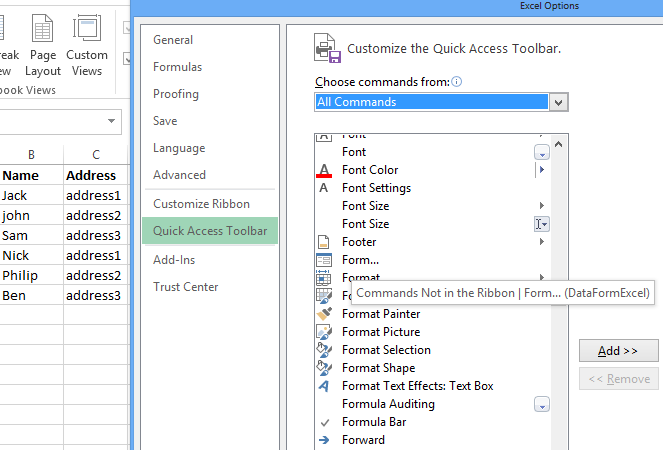
Click Add to add it to the toolbar.
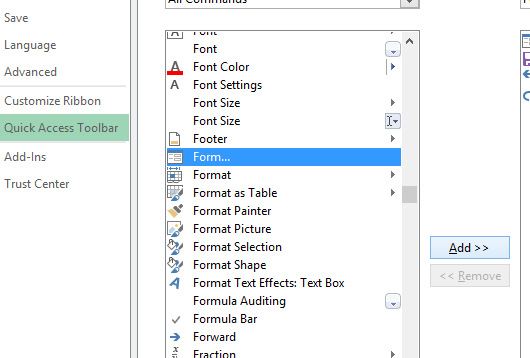
Here’s what will show up at the top of the window in the top left corner of the screen.
![]()
Now select the data and click this Form button.
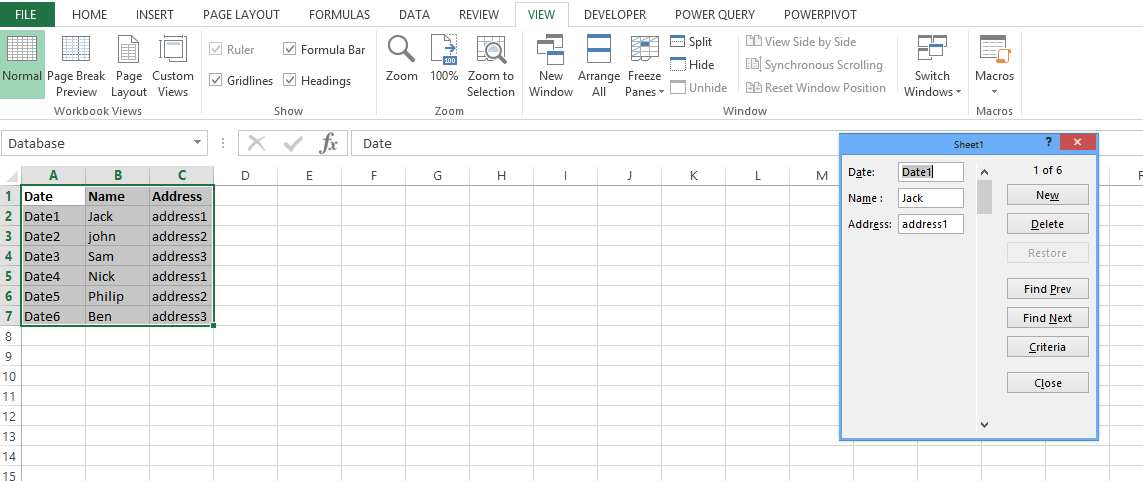

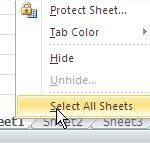
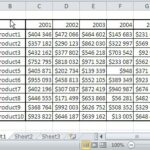

Leave a Reply